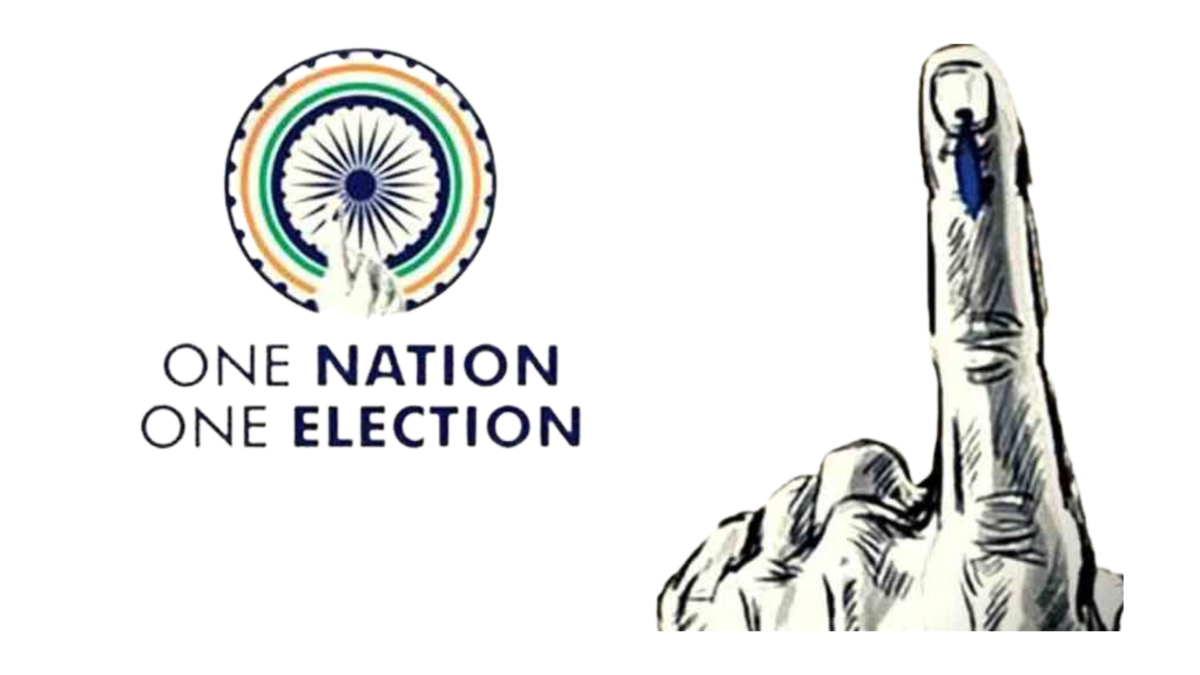The Congress chief, Mallikarjun Kharge, has vehemently opposed the concept of ‘One Nation, One Election,’ deeming it as undemocratic and contrary to the foundational principles of the Constitution. In a detailed four-page letter addressed to Dr. Nitin Chandra, secretary of the high-level committee on ‘One Nation One Election,’ headed by former Pre-sident Ram Nath Kovind, Kharge expressed concerns about the committee’s composition, its alleged lack of representation for opposition parties, and the perceived predetermined nature of its conclusions.
Kharge Skeptical of Committee Consultations, Labels Them an “Eyewash”
Kharge asserted that the high-level committee appeared biased, lacking substantial representation for opposition parties that govern various states, directly impacted by the proposed electoral reforms. While Congress leader Adhir Ranjan Chowdhury was included in the committee by the Centre, he declined participation, citing concerns that the committee’s terms of reference were crafted to ensure predetermined outcomes, characterizing the entire exercise as an “eyewash.”

Expressing skepticism about the committee’s consultations, Kharge contended that the public perceived them as a mere pretense, given the predetermined stance in favor of ‘One Nation, One Election.’ He highlighted the committee’s focus on the purported financial savings associated with simultaneous elections, arguing that the cost of conducting elections was a minimal fraction of the total budget. Kharge questioned the validity of claims related to the financial burden of elections, pointing out that elections occurred infrequently and were essential for upholding democracy.
Call for Transparency: Empowering Voters and Raising Awareness
In response to the committee’s emphasis on financial savings, Kharge criticized the Electoral Commission of India (ECI) for not transparently disclosing the funding process, especially regarding anonymous electoral bonds. He called for increased transparency in funding to empower voters and enhance awareness. Kharge also raised concerns about the use of Voter Verified Paper Audit Trail (VVPAT) machines, noting that the ECI failed to verify votes with VVPAT slips, rendering election results less transparent.
Furthermore, Kharge disputed the committee’s argument that the imposition of the Model Code of Conduct (MCC) during elections hindered welfare schemes and development work. He asserted that pre-existing projects continued during elections, and the Election Commission could approve disbursements for ongoing schemes. Kharge accused the committee of misleading the public by suggesting a complete halt to welfare schemes and development work during elections.
Controversy Over Niti Aayog Inclusion
The Congress leader criticized the inclusion of Niti Aayog in the committee’s references, arguing that it was neither a constitutional nor a statutory body. He emphasized that the committee should have formulated independent recommendations instead of relying on Niti Aayog’s interpretations. Kharge accused Niti Aayog of misinterpreting the Constitution by suggesting varying tenures for state assemblies, undermining the constitutional authority of state governments.
Opposition to President’s Rule
Highlighting the potential impact on state assemblies, Kharge cautioned against the premature dissolution of legislative assemblies, considering it a betrayal of the electorate. He opposed the idea of putting states under President’s Rule in case a Chief Minister lost confidence, terming it a travesty of democracy. Additionally, he raised concerns about the premature dissolution of the Lok Sabha, questioning the necessity of simultaneous elections triggered by the central government’s defeat or resignation.
Also Read: Tragedy Strikes as Overloaded Boat Capsizes During School Picnic in Vadodara
Kharge argued that the concept of simultaneous elections contradicted the parliamentary system of government adopted by the country and went against the constitutional guarantees of federalism. He urged the government and the committee to acknowledge that their efforts conflicted with the basic structure of the Constitution, requiring substantial changes. In conclusion, Kharge strongly advocated for abandoning the ‘One Nation, One Election’ idea and dissolving the high-level committee to safeguard the principles of a thriving and robust democracy.

1 thought on “Congress Chief Kharge Challenges ‘One Nation, One Election’: Calls for Transparency and Constitutional Integrity”